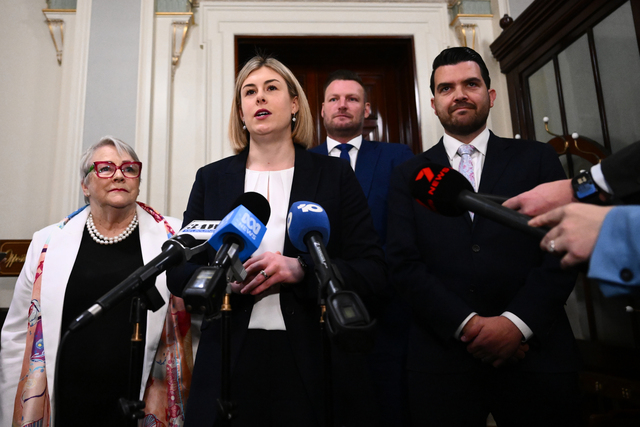A former staffer for State MP Adem Somyurek has described the electorate office in Dandenong as “shambolic” and “dysfunctional”.
Mr Somyurek’s father was paid to clean the MP’s electorate office in Dandenong, the staffer Adam Sullivan told an IBAC Operation Watts hearing on 13 October.
But he only saw the father there on “one or two occasions” – and that was primarily to ask where his pay was.
The “decrepit, rundown” office “complete with cobwebs” didn’t appear to be regularly cleaned, Mr Sullivan said.
The bin liners and “once-over” of the toilet and bathroom sink occurred about once a week.
Mr Sullivan said he took it on himself to clean up the office, such as tidy up stacks of boxes of papers in one of the chambers and to use the broken vacuum cleaner.
His role was to “literally” and “figuratively” clean up the office.
“It was somewhat shambolic when I first entered it.”
When Mr Somyurek offered him the job in August 2017, Mr Sullivan said he was hesitant to transfer from Holt federal MP and factional ally Anthony Byrne’s office.
“By that point Mr Somyurek had some bad press in 2015. He had something of a coloured reputation even amongst our own circle there in the South East in Mr Byrne’s office.
“It was generally well known… that Mr Somyurek’s electorate office was dysfunctional.
“I had a feeling of being set up to fail, that it was a lost cause. Frankly I don’t think Mr Somyurek desired to have his electorate office to be functional.”
He said he feared his political ambitions would be thwarted if he declined the offer from the “titular head” of the Moderate Labor faction.
Mr Sullivan said in his nine months’ full-time tenure, he only saw Mr Somyurek at his electorate office once. At the time, Mr Somyurek was a back-bencher.
“Outside of business hours, I think he might have dropped in.”
In a “functional” electorate office, an MP would regularly attend to oversee things, checking on staff. There would normally be an office manager. It would normally be a “hive of activity”.
But for Mr Somyurek’s several employed electorate officers, there was little constituent work to do.
It was “entirely possible” that they were doing party factional work, though Mr Sullivan couldn’t think of specific examples.
“There was negligible foot traffic in Mr Somyurek’s case.
“There was very little to occupy oneself with in that environment.
“I know in my case I just busied myself with trying to tidy up the office.”
Former Greater Dandenong mayor Pinar Yesil was employed five-days-a-week casually in early 2018. But Mr Sulllivan saw her for “maybe about an hour or two here and there” several days a week.
She was doing “nothing that would approach typical electorate office work”.
“She was logged into the computer. As to exactly what she was doing, though, I can’t rightly say.”
In early 2018, Mr Somyurek was seeking election to the ALP’s national executive.
During work time, Mr Sullivan wrote a letter to be sent to members enlisting their support.
But Mr Somyurek didn’t think it was required because his staff would pick up the ballot papers from members and fill them out themselves.
“Ballot harvesting” was time-consuming, and done during office hours, Mr Sullivan said.
It was an all-hands on deck situation involving taxpayer-funded ministerial and electorate staff.
Mr Sullivan said the activities were run through Mr Byrne’s office because of the “dysfunction” at Mr Somyurek’s.
He said he also did factional work during stints at offices of former state Cabinet Minister Marlene Kairouz and Upper House state MP Tien Kieu.
He’d been directed to work at the offices by Mr Somyurek, he said.
Upon resigning in January 2020, Mr Sullivan referred to Mr Somyurek as “Mein Fuhrer” in private text messages to friends.
“Mr Somyurek had accumulated quite an amount of power and influence over the party.
“He could be a quite, I suppose, overbearing person at times, a volatile person at times.
“And of course anyone in that situation who has that amount of power tends to become a bit of a megalomaniac.”
Mr Sullivan was disappointed in his own role.
“We chose repeatedly to do the wrong thing again, and again, and again, and again.
“And ultimately the choice was that we put our own interests and our own loyalty to a factional machine and a system of patronage above the interests of the public and, speaking as a former public servant, there can be no greater failure.”
















